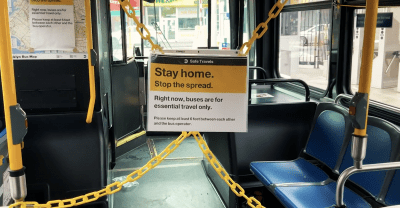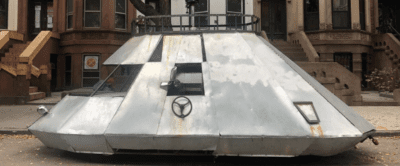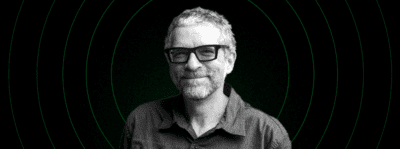Courtesy Scone Cash Players
From Brooklyn to São Paulo and back, Scone Cash Players drop late summer heat
On 'Brooklyn To Brooklin' organist Adam Scone and the Daptones crew have crafted a soulful, border-crossing love letter
Hammond organist Adam Scone hasn’t been to New York since before the pandemic, having moved back to his childhood home in Ft. Lauderdale seven years ago. He’s in town now, though, for an album release show at the Django in Manhattan — but the record itself, “Brooklyn to Brooklin,” is an ode to the better borough.
Scone lived in New York for 20 years before moving to Florida in 2015, but he spent his first 10 years living and playing in Manhattan. Halfway through his New York run, Scone began to leave the city to hang in Brooklyn. All of a sudden, Scone found himself riding the L multiple times a week. Eventually, he moved.
“My favorite times of living in New York was living in Brooklyn,” says Scone, a member of the Daptone Records family who played in the Sugarman Three and his eponymous Scone Cash Players. “I remember when I first moved to Brooklyn, year 15 or something like that, and I just thought, Oh my goodness. What was I doing all these years?”
It’s fitting, then, that Scone’s latest album — his seventh record of organ-forward soul, jazz and funk — holds the borough in high esteem. “Brooklyn To Brooklin” (out September 9 on Daptone) is a 10-track love letter not so much to the city itself, but the energy of openness and creativity it allows for.
“I took more chances on this than on other records,” Scone says. “I was mainly just focused on songwriting and trying to let the music take me where I wanted to go; I wasn’t trying to write in a specific style. And I was even thinking wow, they’re never gonna go for this song, it’s too out there.”
“Brooklyn” encompasses a variety of musical styles, all of which have an element of soul and move seductively from tropical rhythm to California funk. Opener “Cold 40s” is an ebullient summertime jam that conjures the smell of a hot sidewalk freshly soaked from a fire hydrant, while “It Wasn’t Meant To Be” has a sparse, church-like piano that haunts. Instrumental tracks such as “Night Ballads” are equally influenced by the likes of jazz trumpeter Donald Byrd, organist Freddie Roach and Daptone group Menahan Street Band.
“I always had this idea to do sort of an instrumental record, but with a choir or background singers. The organ is taking the place of the lead singer,” Scone says. He brought on vocalists Saundra Williams, who sang with Sharon Jones and the Dap-Kings for many years, as well as Clarence Matheney and Tatiana Sandate. Their voices lend a particularly mournful quality to “All These Bad Things” — a song about peer pressure that could also read as a tale of addiction or love gone bad.
Another track, “Laughing Because” was written with Naomi Shelton of the Gospel Queens in mind, Scone says of the late singer, with whom he collaborated for years. “I just love her so much. When we were working together. I would just hear her voice singing. Unfortunately, she passed away so she couldn’t be on [“Brooklyn to Brooklin”], but I still wanted to record it. The organ is playing the part that she should be singing.”
Much like Brooklyn the borough, “Brooklyn to Brooklin” draws talented musicians from throughout the tristate area and around the world. Scone is joined by Daptone co-founder Neal Sugarman, now living in Switzerland, on tenor sax, as well as Seattle-based shredder Jimmy James, Los Angeles percussionist Caitlin Moss and SJDK touring drummer Brian Wolfe. The album was recorded prior to the pandemic at Penrose Studios in Riverside, California.
So what the heck is “Brooklin?” Hint: It ain’t the town in Maine. That would be a neighborhood in São Paulo, Brazil, where Scone has toured and performed extensively, and where his wife, Georgia, grew up. He imbues the album with plenty of Brazilian influence – from the percussion and hint of bossa nova on “In Our Hands,” to the samba beat on the record’s title track. The jazzy arrangements on “Anadira” – Georgia’s middle name – came almost instantly to Scone, who was “just feeling the Brazilian vibes.”
“When I finally got to Brazil, I was like wow, this kind of looks very familiar to that particular couple of blocks in Williamsburg. I just felt immediately comfortable just walking around, and there’s all this amazing street art everywhere,” Scone recalls of his early visits to Brooklin. “I think it’s more about the energy of the cities and the energy of playing live music. Like, if you’re playing a gig in New York City, it feels way different than if you’re playing a gig in say Miami. But I feel that same energy in São Paulo.”
Still, for all of his travels — and for all his love for Brooklin — Scone clearly keeps the borough closest to his heart. When the chorus sings “I Would Rather Be in Brooklyn” on the album’s bossa-gone-disco title track, you know exactly which of the two they’re referring to.
You might also like 


























